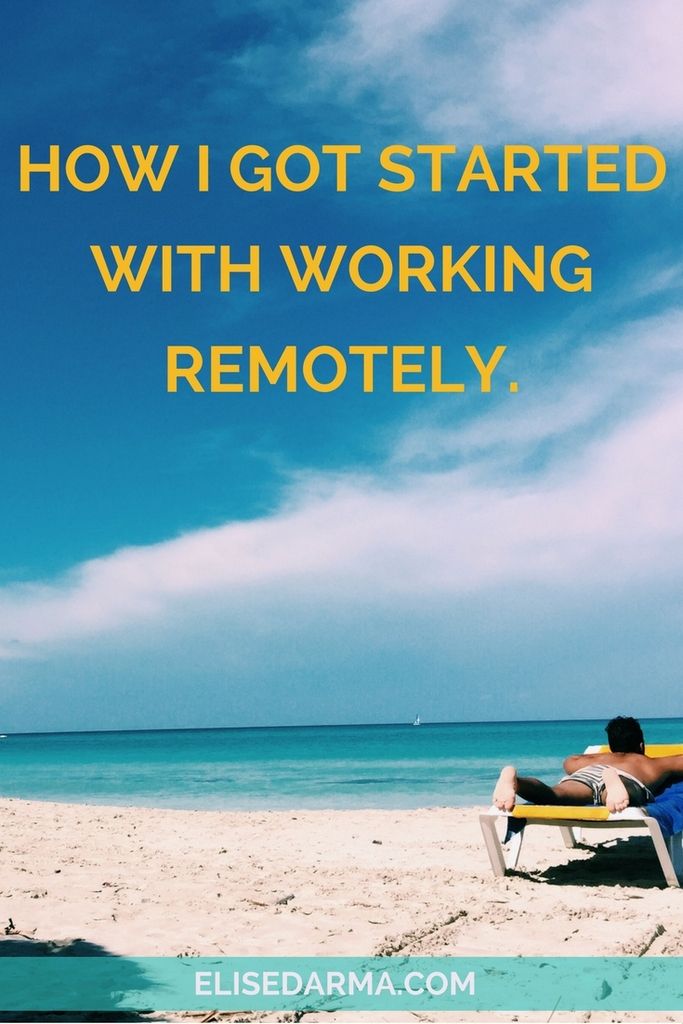EDIT: Since writing this post, I've launched EliseDarma.com. If you're interested in learning more about travel, remote working and entrepreneurship, connect with me there.
There are undeniable perks to working remotely. Sleep-ins, waking up in tropical environments, no worries about how many vacation days are left, needing only a laptop and a good Internet connection to complete your entire office...
And then there is the not-so-glamorous side of things. Late-night marathon sessions (hence the sleep-ins), juggling a variety of time zones with clients, the feeling that you've traveled all this way to enjoy a new beach or city and ironically you're still inside typing away at your computer, a general sense of FOMO (fear of missing out), the constant anxiety stemming from knowing you've got work to do and you really can't "unplug" like normal people do on vacations...
Found some people "unplugging" in the streets of Havana.
I just got back from a trip to Cuba. Cuba isn't exactly known for its reliable Internet so this trip was slightly riskier to take. I did my research as best as I could on what the Internet would be like at the hotel where I'd be staying. All seemed okay and so I went.
Cuba taught me that there isn't much a government can't regulate (aside from the flourishing black market, of course). What an interesting place to see at this point in its history. A local guide shared in great detail how Cuba is a place where doctors earn the same amount as taxi drivers, hitchhiking is a totally acceptable mode of transportation to get to work, and the best jobs in Cuba are the ones where tips are involved. So everyone wants the hotel jobs, especially the bartending and cleaning positions. Apparently the maids make the most money at hotels; tips aside, they are the lucky ones who get to sell off all the stuff you leave behind in your hotel room.
But back to my Internet struggles. I was told that WiFi was readily available in the hotel lobby. When I arrived, I discovered that there is no such thing as free, open WiFi access. I had to purchase an Internet card that lasted for one hour at a time where, I'm guessing, I was monitored each time I logged on. I also discovered that certain key business tools like Google Apps are blocked in countries like Cuba. Yay.
Luckily, my phone was still logged into my business accounts and I was able to juggle between using it and my laptop. But it was rather hectic and a headache to know that I couldn't just glance at my phone for incoming, urgent emails to deal with – I had to log in at various times throughout the day to be sure I wasn't missing anything important.
I've been thinking more lately about this lifestyle of mine that I've created. Is it worth it? After some reflections post-Cuba, I can say this: absolutely. 100%.
I guess my point here is that from the outside, working remotely looks like the best thing ever. And it kind of is. But don't forget that it comes with its own unique set of challenges and stresses. If you're the type of person who thrives off of ever-changing environments and you have a good amount of self-discipline, then working remotely is probably a good fit for you.
Get the free checklist >>
.png?1477688729)
Want to travel the world AND be an entrepreneur? Grab the free starter checklist for the travelpreneur here.
One question I often receive is how I got started with working remotely. The very first step I took was reading Tim Ferriss' book The 4-Hour Workweek – you've probably heard of it. It set the wheels in motion so that I could take the skills I already had and apply them to creating my own online business. The other key component at that time for me was being surrounded by supportive people who were a few steps ahead of me in that regard. They themselves were already working towards building their own online businesses, so to be immersed in their confidence and insight was very motivating.
To people who ask me how they can get started working remotely, I say: read Tim's book, begin to build your business using the online skills you already have (or can learn), and – most importantly – surround yourself with good people.
See more of my travel photos on Instagram – @EliseDarma – or if you have any questions or suggestions, feel free to email me at elise@canupy.com. Happy to help!
You might also like:
Paying for the remote working, travel dream. 2015 by the #s.
About the Author:
Elise Darmanin believes that "travel is the only thing you buy that makes you richer." That's why she makes beaches, coffee shops and co-working spaces her office by working remotely while growing Canupy Content. Canupy is a social media and copywriting agency for small to medium-sized businesses. The Canupy team helps brands grow through social media marketing, copywriting and content strategies that inspire audiences and drive sales.





